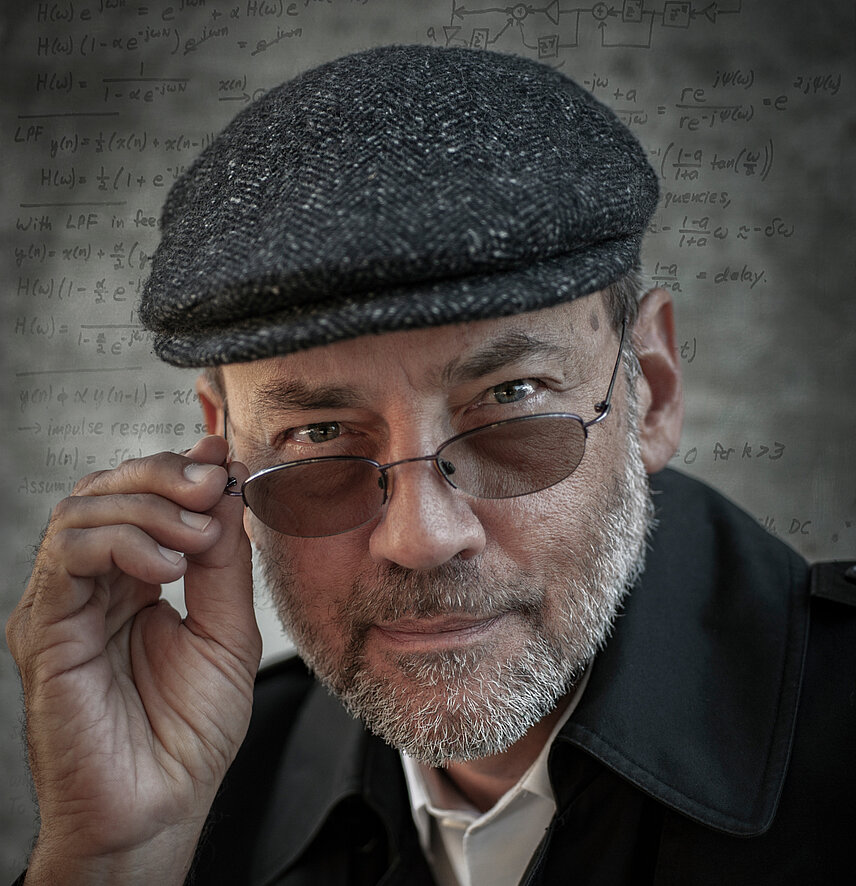20.02.2025
On February 20, Prof. Edward Lee from UC Berkeley will give a talk with the title "Will Embodied AI Become Sentient?" as part of our newly established Lecture Series.
 © Rusi Mchedlishvili
© Rusi Mchedlishvili
The Research Center would like to invite you to our newly established UA Ruhr Distinguished Lecture Series "Trustworthy AI".
Distinguished Lecture: "Will Embodied AI Become Sentient?" by Prof. Edward A. Lee, Division of Electrical Engineering (EECS), UC Berkeley
- WHERE: **changed** August-Schmidt-Str. 4, 44227 Dortmund, HG1/HS6, 14:15
- WHEN: Feb 20th, 2025
- Register online for the talk and the following panel discussion, or follow the event online via zoom.
Abstract
Today's large language models have relatively limited interaction with the physical world. They interact with humans through the Internet, but even this interaction is limited for safety reasons. According to psychological theories of embodied cognition, they therefore lack essential capabilities that lead to a cognitive mind. But this is changing. The nascent field of embodied robotics looks at properties that emerge when deep neural networks can sense and act in their physical environment. In this talk, I will examine fundamental changes that occur with the introduction of feedback through the physical world, when robots can not only sense to act, but also act to sense. Processes that require subjective involvement, not just objective observation, become possible. Using theories developed by Turing Award winner Judea Pearl, I will show that subjective involvement enables reasoning about causation, and therefore elevates robots to the point that it may become reasonable to hold them accountable for their actions. Using theories developed by Turing Award winners Shafi Goldwasser and Silvio Micali, I will show that knowledge can be purely subjective, not externally observable. Using theories developed by Turing Award winner Robin Milner, I will show that first-person interaction can gain knowledge that no objective observation can gain. Putting all these together, I conclude that embodied robots may in fact become sentient, but also that we can never know for sure whether this has happened.
Bio
Prof. Edward A. Lee has been working on embedded software systems for more than 40 years. After studying and working at Yale, MIT, and Bell Labs, he landed at Berkeley, where he is now Professor of the Graduate School in EECS. He is co-founder of Xronos Inc. and BDTI, Inc. He is a founder of the open-source software projects Lingua Franca and Ptolemy and is a coauthor of textbooks on embedded systems, signals and systems, digital communications, and philosophical and social implications of technology. His current research is focused on the Lingua Franca polyglot coordination language for distributed cyber-physical systems.
As appetizer, we recommend his previous talk Certainty vs. Intelligence.
Complete Program
- 10:00 - Meet the Research Center Trustworthy Data Science and Security
We would like to introduce our research center to you. Hence, if you want to meet and network with us beforehand, we start at 10:00 in the same lecture hall with three introductory talks by Prof. Daniel Neider, Prof. Alexander Marx, Jan Corazza and Prof. Emmanuel Müller.
Location: Otto-Hahn-Strasse 14, Dortmund, E23 - 14:15 - Distinguished Lecture by Edward Lee
Location: August-Schmidt-Str. 4, 44227 Dortmund, HG1/HS6 - 15:15 - Panel Discussion
After our Distinguished Lecture, we have an interdisciplinary panel discussion with Prof. Jens Gerken, Prof. Nicole Krämer, Prof. Sergio Lucia, Prof. Jakob Rehof, and Prof. Eva Schmidt.
Location: August-Schmidt-Str. 4, 44227 Dortmund, HG1/HS6 - 16:00 - Networking Session with Snacks and Drinks
After the panel discussion, we invite you to join us for an informal exchange over snacks and drinks.
Location: Rudolf-Chaudoire Pavilion (right next to the lecture hall HG1/HS6).
Category
- Talk
- Network
- Event